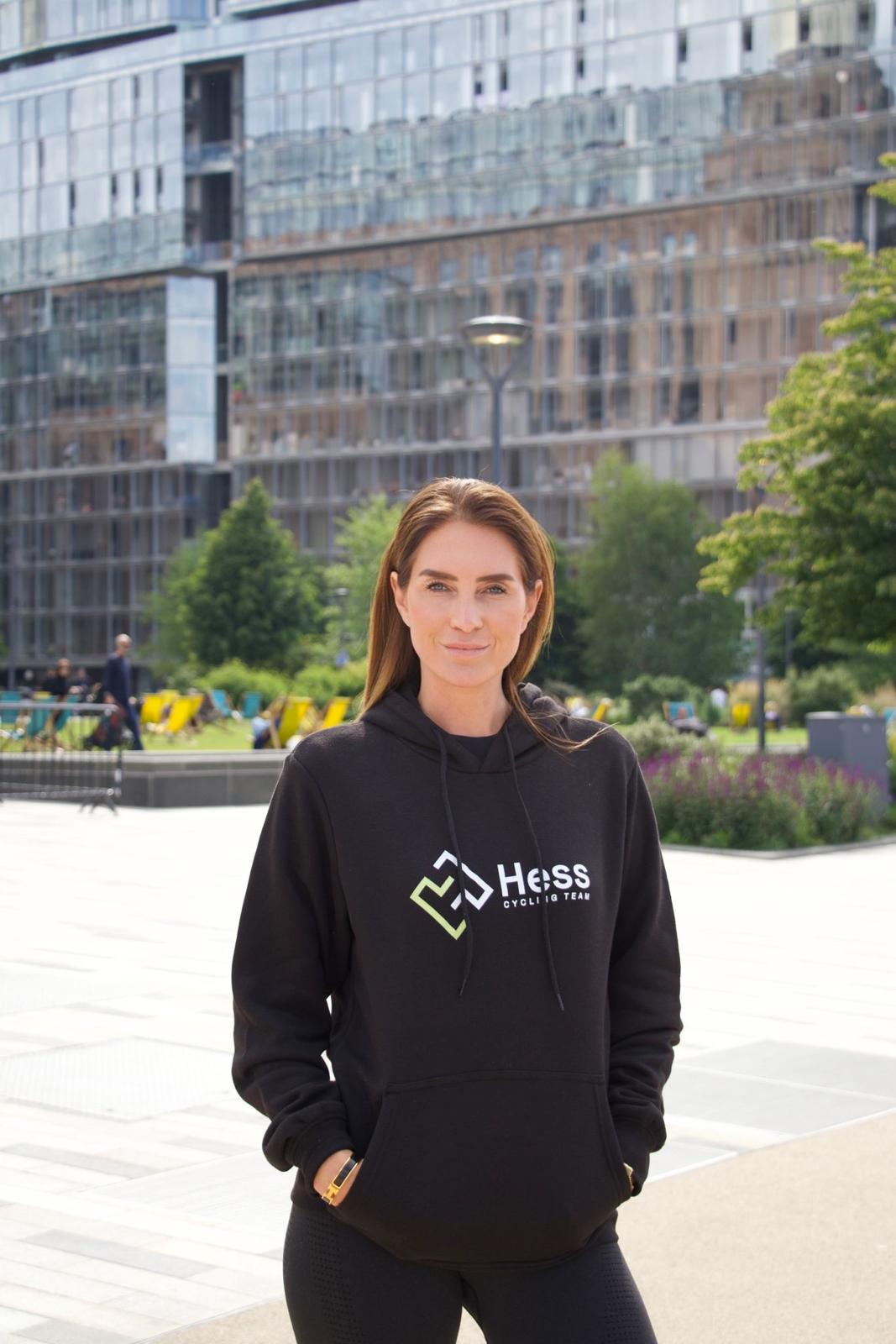We had the opportunity to sit down with Emily Edmonstone, the Director of Hess Sports Group, to gain her valuable insights on female empowerment in sports, the ever-evolving landscape of women in professional cycling and football, and her vision for the future of Hess Sports Group.
Read on to discover Emily’s insights and valuable advice for aspiring athletes.
How do you feel Hess Sports Group champions female empowerment?
“Hess Sports Group empowers women through sports such as cycling and football and we actively promote gender equality, which I strongly believe is vital in the world we live in. Our goal is to empower our athletes by building their confidence, developing teamwork, challenging them to reach their full potential, and guiding them toward their goals. We work together to help them pursue their aspirations, both within the sport and beyond.”
What advice would you give to young women aspiring to break into male-dominated sports?
“Breaking into male-dominated sports can be very challenging, but anything can be achieved with the right mindset and belief. My advice for overcoming these challenges is to have confidence in yourself and trust your abilities. Believe that you belong in the sport, and you’ll excel. Accept challenges and setbacks, but don’t let them deter you from your end goal. Resilience is key, learn from your failures and keep pushing forward.”
How important is media visibility in empowering women and girls to participate in sports?
“Media visibility plays a crucial role in empowering women and promoting gender equality in sports for several reasons. Positive media coverage of female athletes can inspire young girls to pursue their dreams in sports. Seeing successful women and role models in various sports helps to break down stereotypes and encourages others to follow in their footsteps. This is like all aspects of life. We all have a role model who can motivate and guide us, this is the same for aspiring female athletes. When we see someone that we admire in the spotlight, it boosts our confidence and encourages ambition.
Media visibility is also important for attracting sponsorships and providing essential funding and resources for women’s sports. Media can also highlight the challenges women face in sports and how we can address them.
If you could change one thing about the professional sports industry, what would it be and why?
“If I could make one change in the women’s professional sports industry, it would be to ensure equal pay in women’s sports and funding for athletes and teams. Why? Because addressing the long-standing disparity between male and female athletes is a matter of equity and fairness. Female athletes put in the same hard work, dedication, and talent, and deserve the same respect and recognition as male athletes.”
How do you think social media contributes to raising the visibility and profiles of female athletes?
“Social media plays a crucial role in raising the visibility and profiles of female athletes. It is a powerful tool for sportswomen to share their narratives, connect with fans, and advocate for change. The role of media in women’s sports also enhances their visibility and impact in sport.”
Which leading sportswomen do you feel are driving societal change and equality?
“One of the most prominent women in sports driving societal change and equality is Megan Rapinoe. She is known for being a vocal advocate for gender equality. She played a very significant role in the fight for equal pay for female athletes. I believe she is a powerful figure in the movement for gender equality in sports and beyond.”
What advice would you give to young women and female athletes hoping to get into professional cycling?
“For young women aspiring to enter the world of professional cycling, I would advise them to train consistently, focus on building endurance, strength and technical skills. My other tips for women interested in professional cycling would include participating in local races and events to gain experience. Find local cycling clubs or teams that promote inclusivity and encourage female participation in cycling. Work with a cycling coach to improve your skills and reach your goals. Learn about fuelling your body for training and recovery. Establish your short-term and long-term goals for your cycling career. Goals can help you keep motivated and reach your dreams.
Competing in races and competitions helps you learn how to handle race day pressures and develop your tactical skills.”
How can the sports industry encourage more women to participate, both recreationally and professionally?
“I would love to see more community programmes, workshops and events, for women in sport, to create a supportive environment where women feel encouraged to ride, learn and connect with others. It would be great to see for example cycling made more accessible to beginners.
It all depends on the sports, some sports are more expensive to get into than others. With cycling you need a lot more equipment and making these available for more would be a great start. In Waterford where we have our Waterford FC Women’s team our Community Manager Colin has a boot room where people that do not have the means can get football equipment. This is something I truly believe is important and missing from so many sports and industries. I would advocate for campaigns featuring diverse female athletes, of all ages, all body types, and backgrounds to make the different sports more relatable and appealing to women. Equally, I think promoting female athletes as role models who can inspire others to start being active, whether as a hobby or professionally, would be hugely beneficial. The cycling industry should focus more on celebrating the achievements and stories of women in sport while encouraging greater participation from women and girls. Also, organising family-friendly events and creating opportunities for children to participate could inspire a love for any kind of sport from an early age. We have realised that a female football game attracts more families, so in Waterford we have taken this up and arrange more family friendly activities around the pitch. We offer face painting, balloon makers, candy floss, etc. and encourage families to use the game as a family outing. Something that works and has been received really well.”
Emily’s passion for driving positive change in sports and her dedication to supporting female athletes are truly inspiring. Emily’s vision for a more inclusive and equitable sports industry offers hope for a brighter future for women in sports and women’s sports leadership. We are excited to see the continued growth of Hess Sports Group and the impact it will have on empowering the next generation of female athletes.
Thank you, Emily!


